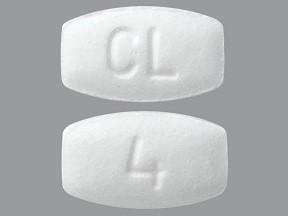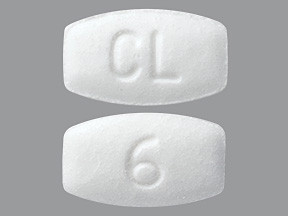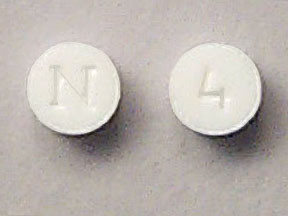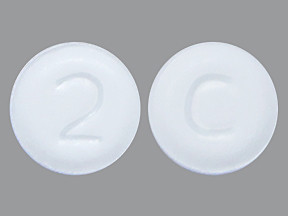NITROGLYCERIN - SUBLINGUAL
PHONETIC PRONUNCIATION: (NYE-troe-GLIS-er-in)
COMMON BRAND NAME(S): Nitrostat
GENERIC NAME(S): nitroglycerin
Uses
USES: This medication is used to relieve chest pain (angina) in people that have a certain heart condition (coronary artery disease). It may also be used before physical activities (such as exercise, sexual activity) to help prevent chest pain. Nitroglycerin belongs to a class of drugs known as nitrates. Angina occurs when the heart muscle is not getting enough blood. This drug works by relaxing and widening blood vessels so blood can flow more easily to the heart.
How to use NITROGLYCERIN - SUBLINGUAL
HOW TO USE: Ask your doctor now for exact instructions on how to use your nitroglycerin and when to call for emergency medical help (911). Read the Patient Information Leaflet if available from your pharmacist before you start using nitroglycerin and each time you get a refill. If you have any questions, ask your doctor or pharmacist. Sit down before using this medication. Place 1 tablet under the tongue and allow it to dissolve as directed by your doctor. Do not chew or swallow the tablet. The dosage is based on your medical condition and response to treatment. If you are using this medication to prevent chest pain before physical activities, use it 5 to 10 minutes before the activity. If you are using this medication to relieve chest pain once it occurs, use it as soon as possible. If your chest pain has not improved or if it has worsened 5 minutes after you use this drug, call emergency medical help (911). After calling the emergency number, use another dose. Five minutes after the second dose, if you still have chest pain and the ambulance has not arrived, use a third dose. If your chest pain is not gone after 15 minutes and 3 doses of nitroglycerin, call emergency medical help (911) if you have not called already. Do not use more than 3 doses during an attack unless directed by your doctor.
Side Effects
Precautions
Interactions
Overdose
Images

- color
- white
- shape
- rectangle
- imprint
- CL, 4

- color
- white
- shape
- rectangle
- imprint
- CL, 4

- color
- white
- shape
- rectangle
- imprint
- CL, 4

- color
- white
- shape
- rectangle
- imprint
- CL, 6
Reviews
Faq for NITROGLYCERIN - SUBLINGUAL
Nitroglycerin sublingual is a medication that is placed under the tongue to relieve chest pain or angina. It belongs to a class of drugs called nitrates, which work by relaxing and widening blood vessels, allowing more oxygen and blood flow to the heart.
Place one nitroglycerin tablet under your tongue and let it dissolve completely. Do not swallow or chew the tablet. You may feel a tingling sensation under your tongue as the medication is absorbed. If the chest pain persists after 5 minutes, you can take a second tablet. However, if the pain still does not subside after a total of three tablets, seek immediate medical attention.
Nitroglycerin sublingual usually starts working within 1 to 3 minutes after placing the tablet under the tongue. It provides rapid relief from angina symptoms, such as chest pain or tightness.
The effects of nitroglycerin sublingual typically last for about 30 minutes to 1 hour. It is important not to exceed the recommended dosage and frequency specified by your doctor.
Common side effects of nitroglycerin sublingual may include headache, dizziness, lightheadedness, flushing, or a burning sensation under the tongue. These side effects are usually mild and temporary. However, if you experience severe side effects like a rapid or irregular heartbeat, fainting, or a severe headache, seek immediate medical attention.
No, nitroglycerin sublingual is not used for preventing angina attacks. It is primarily used to relieve acute symptoms and provide immediate relief when an angina attack occurs. Your doctor may prescribe other medications for long-term prevention of angina attacks.
Nitroglycerin sublingual may cause dizziness or lightheadedness, which can impair your ability to drive or operate machinery. It is advisable to wait until you know how this medication affects you before engaging in activities that require alertness.
It is generally not recommended to consume alcohol while taking nitroglycerin. Alcohol may increase the side effects of nitroglycerin, such as dizziness and lightheadedness.
Nitroglycerin sublingual can interact with certain medications, including erectile dysfunction drugs like sildenafil (Viagra) and tadalafil (Cialis), blood pressure medications, and other nitrates or nitrites. It is important to inform your healthcare provider about all the medications you are taking to avoid potential drug interactions.
Disclaimer
IMPORTANT: HOW TO USE THIS INFORMATION: This is a summary and does NOT have all possible information about this product. This information does not assure that this product is safe, effective, or appropriate for you. This information is not individual medical advice and does not substitute for the advice of your health care professional. Always ask your health care professional for complete information about this product and your specific health needs.



No Reviews Yet